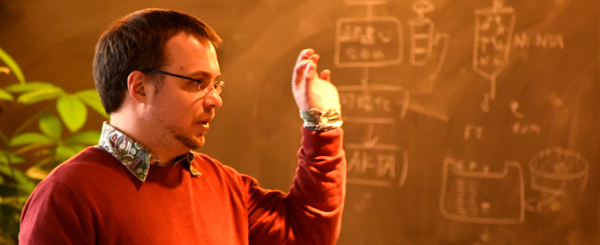ELSIセミナー
Motility at the origin of life and the evolution of the genome
- スピーカー
- Tom Froese (Instituto de Investigaciones en Matemáticas Aplicadas y en Sistemas, Centro de Ciencias de la Complejidad, Universidad Nacional Autónoma de México)
- 日付
- February 5, 2016
- 時間
- 15:30
- 場所
ELSI-2 Building - 104 ELSI-Lounge

Abstract:
Traditionally, there has been a dispute about whether metabolism or replication came first during the origin of life. Yet both of these approaches are in implicit agreement that the first forms of life were basically passive. That shared assumption has begun to be challenged by a new generation of metabolism-first approaches, emphasizing that movement and adaptive behavior could have played an important role right from the start (1-3). I introduce this theory of a behavior-based origin of life and consider how it can help to inform our thinking about the origins of the genetic system.
1. T. Froese, N. Virgo, T. Ikegami, Motility at the origin of life: Its characterization and a model. Artificial Life 20, 55-76 (2014).
2. M. M. Hanczyc, Metabolism and motility in prebiotic structures. Philosophical Transactions of the Royal Society B: Biological Sciences 366, 2885-2893 (2011).
3. M. D. Egbert, X. Barandiaran, E. A. Di Paolo, Behavioral metabolution: The adaptive and evolutionary potential of metabolism-based chemotaxis. Artificial Life 18, 1-25 (2012).












